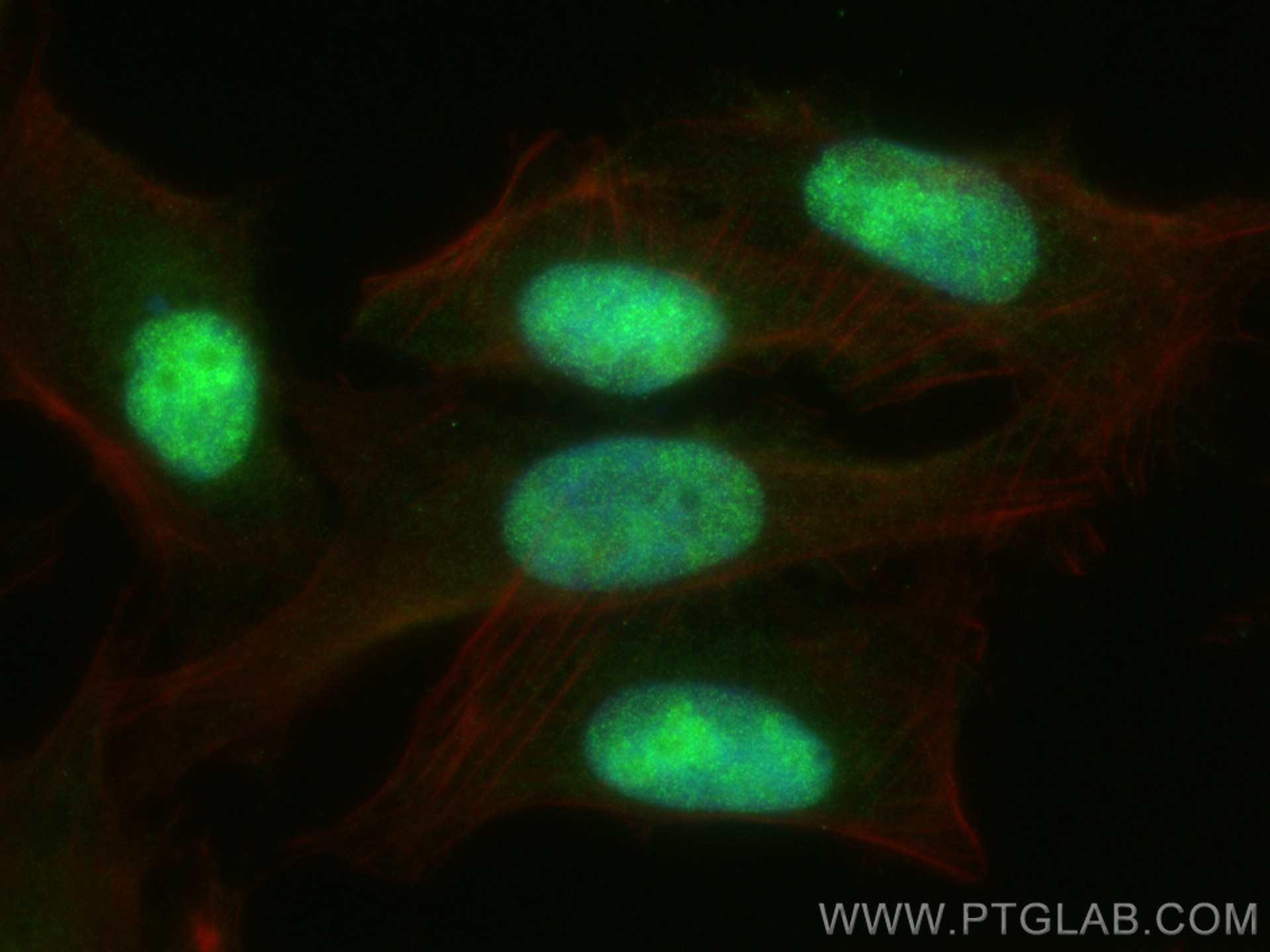REV1 Polyclonal antibody
REV1 Polyclonal Antibody for WB, IF, ELISA
Host / Isotype
Rabbit / IgG
Reactivity
human, mouse, rat
Applications
WB, IF, ELISA
Conjugate
Unconjugated
Cat no : 17703-1-AP
Synonyms
Validation Data Gallery
Tested Applications
| Positive WB detected in | HeLa cells |
| Positive IF detected in | U2OS cells |
Recommended dilution
| Application | Dilution |
|---|---|
| Western Blot (WB) | WB : 1:500-1:2000 |
| Immunofluorescence (IF) | IF : 1:50-1:500 |
| It is recommended that this reagent should be titrated in each testing system to obtain optimal results. | |
| Sample-dependent, Check data in validation data gallery. | |
Product Information
17703-1-AP targets REV1 in WB, IF, ELISA applications and shows reactivity with human, mouse, rat samples.
| Tested Reactivity | human, mouse, rat |
| Host / Isotype | Rabbit / IgG |
| Class | Polyclonal |
| Type | Antibody |
| Immunogen | REV1 fusion protein Ag11975 |
| Full Name | REV1 homolog (S. cerevisiae) |
| Calculated Molecular Weight | 1114 aa, 122 kDa |
| Observed Molecular Weight | 140-150 kDa |
| GenBank Accession Number | BC037734 |
| Gene Symbol | REV1 |
| Gene ID (NCBI) | 51455 |
| Conjugate | Unconjugated |
| Form | Liquid |
| Purification Method | Antigen affinity purification |
| Storage Buffer | PBS with 0.02% sodium azide and 50% glycerol pH 7.3. |
| Storage Conditions | Store at -20°C. Stable for one year after shipment. Aliquoting is unnecessary for -20oC storage. 20ul sizes contain 0.1% BSA. |
Background Information
Rev1 is a member of the TLS polymerase family and plays a key role in this mutagenic pathway, which allows the bypass of modified DNA bases and respectively, facilitates proliferation even in the presence of extensive DNA damage, such as during chemotherapy. Mutations in human REV1 have been detected in a minority of tumors, and single-nucleotide polymorphisms (SNPs) in the hREV1 gene have been linked to various types of human cancer.
Protocols
| Product Specific Protocols | |
|---|---|
| WB protocol for REV1 antibody 17703-1-AP | Download protocol |
| IF protocol for REV1 antibody 17703-1-AP | Download protocol |
| Standard Protocols | |
|---|---|
| Click here to view our Standard Protocols |



